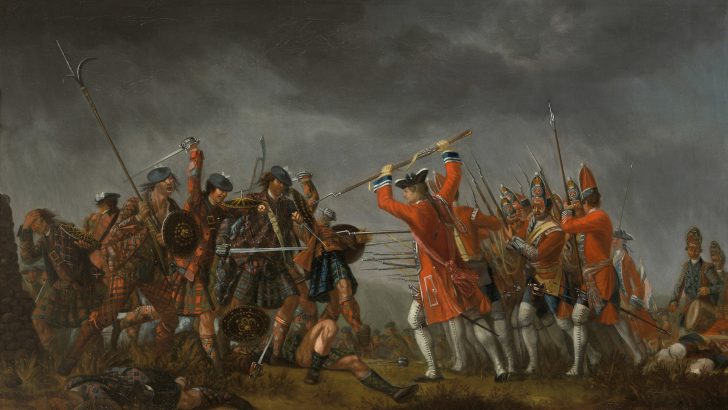Battles that Changed History: Epic conflicts explored and explained
by Phillip Parker, R.G. Grant & Andrew Humphreys, foreword by Sir Tony Robinson (Dorling Kindersley, £20.00)
There is something deep in the male psyche that loves wars and tales of wars. Women with their very different view of the world are generally unmoved by tales of war, though they may well admire a hero.
This is then a book which will appeal to a wide readership, from 10-year-olds to 80- year-olds still in touch with their inner child. But it may well leave the more thoughtful with deep concerns.
The text recycles the traditional events of such collections. It begins with Marathon in 490, but as it proceeds it adds in little known battles from Asia, from India, Tartary and China. It seems from the contents that Africa and the Americas have had no decisive battle before the coming of the Europeans. But we know who were defeated in those continents and why.
Ireland has its place here, with the Battle of the Boyne in 1690. The short entry remarks: “Despite having taken place, this battle was fought between two English kings – one Catholic, and one Protestant…the Williamite army overpowered the Jacobites and James fled to France, ending the threat of a Catholic resurgence in England.”
Of course, this was only an apparent decisive victory – the struggles between England, Scotland and Ireland went on, and alas still do, as Brexit has revealed.
Murderous march
Fifty-five pages later a small entry appears for Cullodon, with no reference to the “decisive” nature of the Boyne. This too is seen as decisive: no mention is made of the Duke of Cumberland’s murderous march through the Highlands, which was “decisive” in its own way for the social history of Scotland, though not in the way the editors mean.
The truth of history is that there is no such thing as a decisive battle. All battles, all wars, merely lead to more wars, more battles.
Take, for instance the last battles dealt with in these pages. One of these is the Battle of Dien-Bien-Phu, in which the Viet-Minh defeated the French, simply by superior strategy. This along with the Algerian War a couple of years later disillusioned the French elite completely. Yet that victory only led to US intervention, and the long years of the Vietnam War that ended in defeat for the Americans.
The last battle of all is Operation Desert Storm in 1991. The section avoids any mention of the political context which allowed Saddam to believe that he could reintegrate Kuwait into the territory of Iraq, which it had formed part of under the Ottomans.
That war ended with George Bush declaring ‘victory’ after three days, only to have to fight for the whole country in 2003.
This was only an apparent decisive victory – the struggles between England, Scotland and Ireland went on”
In the account of this war (three pages later) the editors have to admit the validity of this invasion remained a matter of debate (as indeed it still is); nor did it prove decisive, as the US army remained in occupation until 2011. And Iraqi cannot be called a peaceful place even now.
Despite the vain pursuit of “the decisive victory” soldiers and politicians and patriots are obsessed with the one last push theory that will crack the problem.
Given the sheer slaughter of humanity by the advanced industrial powers, and their agents, using their developed weapons in other continents, uncountable millions have died – only estimates of those killed by state power can be given – exact figures simply do not exist.
This all leaves the Christian, let alone the Catholic, in a quandary. War for industrial societies has changed: destroying cities in complete safety from 30,000 feet requires no courage, merely the skill of a video games expert.


 Peter Costello
Peter Costello The battle of Culloden – ‘An Incident in the Rebellion of 1745’, by David Morier.
The battle of Culloden – ‘An Incident in the Rebellion of 1745’, by David Morier. 